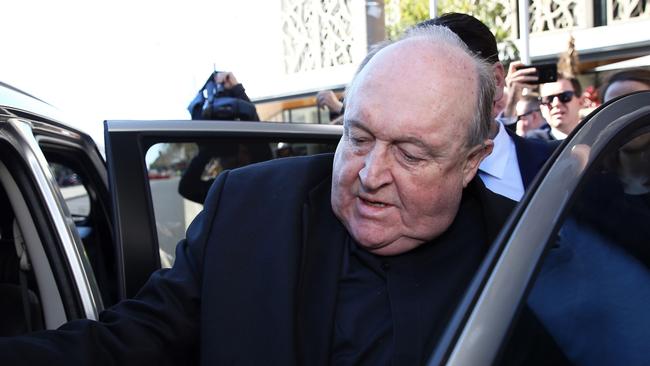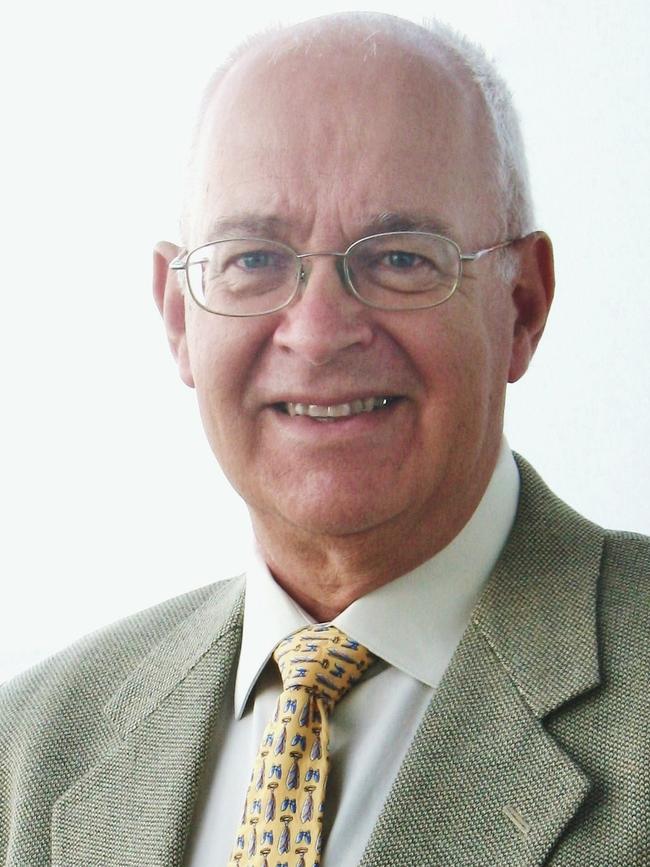Fred Van Gestel: Why Catholic superiors struggle to understand destructiveness of sexual abuse
FORMER insider Fred Van Gestel explains lucidly why Catholic Church superiors, like convicted former Adelaide archbishop Philip Wilson, have struggled to understand sexual abuse and its destructiveness — from his own experience.
NO, Archbishop Philip Wilson does not get it!
As a former Catholic Church insider, I may be able to shed some light on this contentious subject.
To the age of 50, I was a priest within the hierarchical structure, the Catholic Church. For many centuries, it has stood on its own self-belief and self-righteousness.
The faithful trusted and obeyed unquestioningly. It was a cosy, secure existence for everyone. The laws of the church, canon law, guided everyone on the path to heaven.
With the centuries, the Australian church gained numbers, power and influence. The hierarchy became part of the Establishment.
In the past few years, that Establishment has been shaken to its very core.
Early October 1987, there was a knock on my presbytery door at 3am. A young man in his mid-20s confronted me. He was about to take his own life.

He explained in graphic terms how he had been abused by a priest 10 years previously and could no longer bear the burden.
The police expressed no interest in the matter, and a lawyer laughed it off. That same week, I received a letter from the US seeking $20,000 compensation for a similar offence by the same priest.
I immediately referred both cases to my authorities, who assured me they would deal with it. I was to leave it with them.
Over the next months, other victims came forward, in the end totalling well over a dozen, and as the years passed, many more.
I soon came to realise my superiors had limited understanding of the abuse and its destructiveness.

One victim committed suicide, many were seriously disturbed, carrying massive emotional loads for the rest of their lives.
Before 2012, the whole area of sexual abuse was cast in a different light. The church hierarchy saw itself as untouchable.
Canon law was older, and hence superior to civil law.
Challenges were dealt with behind closed doors in absolute secrecy. Anyone who reported abuse had to do so on Catholic Church terms. They were quizzed by ecclesiastical representatives, who were there to defend the dignity, status and finances of the church.
These authorities had taken on the responsibility of dealing with paedophilia, but with little understanding of its emotional gravity.
Their approach was mostly legalistic. Any victim that overstated a case and expressed uncertainty, lack of proof and hesitancy was discarded.
In September 2010, I spoke out publicly on behalf of the victims in a major Australian newspaper. I was seen as a traitor to the Catholic Church.
During the past eight years, the atmosphere in society regarding paedophilia has altered radically.
Today, politicians, police, the press, educational leaders, lawyers and even the church have jumped on the bandwagon of condemning paedophiles. How it sickens those of us who were ignored back in the 1980s.
Where were they then, we ask? Society, and especially many Catholic faithful, demand to know how people like Philip Wilson still cannot show remorse. How can they live with their conscience? Why can’t they see what is blatantly obvious to everyone else? Are they not aware they have caused more damage to the Church than even the paedophiles?
Living as a member of the hierarchy inside the cocoon of the church has two levels of existence. The major one is to play a vital and significant role in the cocoon; the second is one’s own personal life.
The first holds a thought process set in concrete. Within this existence, there is no need for remorse, as long as one does what is correct: defend the Church against all onslaughts, preserving its status, dignity and 2000-year history.
In the second, one is tolerated as human, allowed shortcomings and misdemeanours, provided they are kept secret and guilt is confessed.
But, there is hope. Bishop Vincent Long said: “The Catholic Church must die to the old ways of being church, steeped in a culture of clerical power, dominance and privilege. We must abandon the old paradigm of a fortress church, which is prone to exclusivity and elitism.” The last word can be given to French author Antoine de Saint-Exupery, through his character The Little Prince: “Only with the heart can one see rightly!”
■ Fred Van Gestel is a former Catholic priest
